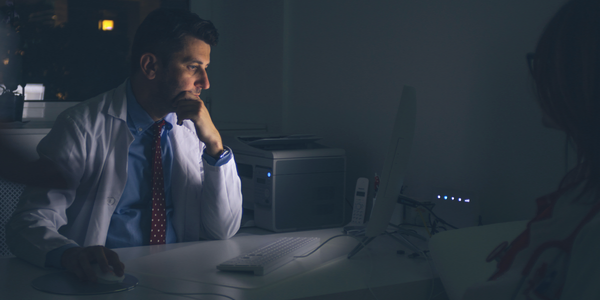
Birth control offers protection against pregnancy by stopping ovulation and comes in various forms, including pills, injections, and implants.
A birth control implant is reversible and considered to be one of the most effective forms, as there is no risk of forgetting to take it that commonly occurs with pills. The implant is often injected in the arm, and delivers a light and steady dose of hormones for three years.
Unlike other birth control forms that often contain the two hormones estrogen and progestin, a birth control implant only contains one hormone. Nexplanon, specifically, is estrogen-free, which makes it a valuable option for women not able to use the hormone for whatever reason.
But like other birth control forms, the implant comes with the risks of side effects, including weight gain.
Does the Birth Control Implant Really Cause Weight Gain?
Before addressing the potential risk of weight gain, it is important to dissect what constitutes birth control implants.
Nexplanon contains the core ingredient etonogestrel, which is the synthetic version of the hormone progesterone that helps regulate menstrual cycles. Once the implant is placed, changes in hormones may lead to weight gain.
Progesterone has also been associated to increased appetite, thus increasing food intake and eventually place the risk of weight gain.
What the Research Shows
The Food and Drug Administration (FDA) reviews the evidence on whether or not the birth control implant leads to weight gain.
In clinical studies, average weight gain in etonogestrel implant users was 2.8 pounds after one year and 3.7 pounds after two years. However, how much of the weight gain was related to the etonogestrel implant is unknown.
A specific 2015 study suggests weight gain is mostly perceived. Additional 2016 research found no evidence of weight gain from short-term implant use, though women were more likely to perceive weight gain after receiving birth control in the arm.
Researchers further propose, "The practice of counseling women to expect possible weight gain from initiating implant use could lead them to perceive weight gain even in its absence and contribute to the early discontinuation of this highly effective contraceptive method."
What's more, the FDA addresses 2.3 percent of birth control users reported weight gain as the reason for having the etonogestrel implant removed.
Potential Hypotheses for Weight Gain
Weight gain may be explained by additional noted consequences of taking Nexplanon, including metabolic changes, fluid retention, and feelings of depression:
• Metabolic changes: Using Nexplanon places may induce mild insulin resistance and small changes in glucose concentrations, which warrants careful monitoring in prediabetic and diabetic women.
But in addition to the impact on blood sugars, insulin resistance makes it easier to gain weight and harder to lose it.
• Fluid retention: The birth control implant may also cause some degree of fluid retention.
While fluid retention should not be confused with true weight gain, holding onto excess water may temporarily increase the number on the scale and be discouraging.
• Feelings of depression: Hormonal changes influenced by the implant and other forms of birth control can result to changes in mood and lead to feelings of depression.
While depression does not directly result to weight gain, there is an increased risk of eating based on emotion rather than true hunger.
Weight gain is not a destined side effect, though. So if gaining weight while on the birth control implant, it is also important to consider other lifestyle factors that may also tip the scale.
Weight gain can be caused by a poor diet, physical inactivity, inadequate sleep, chronic stress, certain health conditions and medications.
Additional Birth Control Implant Side Effects
Not having a period on Nexplanon is considered to be not only be completely normal, but safe. Menstrual changes should also regulate after the first 90 days of implantation.
However, according to the official Nexplanon website, 1 in 10 women stop taking the implant related to unfavorable changes in menstrual bleeding patterns. The most common changes may include:
• Longer or shorter bleeding during your period
• No bleeding at all during the time of your period
• Spotting between your periods
• Varied amounts of time between your periods
In addition to menstrual changes and weight gain, other side effects of taking Nexplanon include:
• Headache
• Vaginitis (inflammation of the vagina)
• Acne
• Breast pain
• Viral infections such as sore throats or flu-like symptoms
• Stomach pain
• Painful periods
• Mood swings, nervousness, or depressed mood
• Back pain
• Nausea
• Dizziness
• Pain at the site of insertion
Consult with a Doctor
Ultimately, birth control in the arm is noted to be a safe, effective, and convenient solution for women.
However, if problems arise in the injection area or periods are long and painful, it is important to consult with a doctor. They can aid in determining whether or not the birth control is suitable, and potentially encourage trialing it for a 90-day stent.
If experiencing other negative side effects, including weight gain, a doctor can also help coordinate an individualized plan to mitigate such risks. They may further coordinate care with a Registered Dietitian, who can devise a nutritional plan to accommodate both personal needs and preferences.







